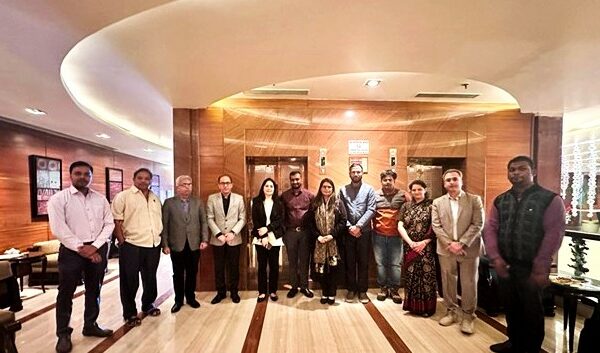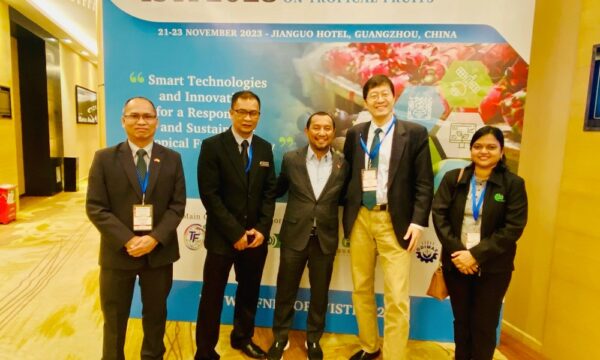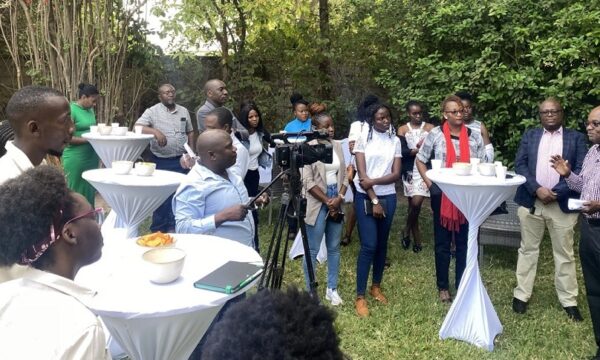The Generative Artificial Intelligence for Agriculture Advisory (GAIA) project aims to strengthen agricultural advisory services in Kenya and India. Running from 15 April to 31 December 2024, this pilot project brings together partners to leverage the power of Generative AI to enhance the support available to agricultural extension advisors. The initiative, funded by the Bill & Melinda Gates Foundation, initially focuses on Kenya and India, where farmers face significant pest and disease challenges.

The power of Generative AI in agriculture
Generative AI (or GenAI) is a group of artificial intelligence systems designed to create new content based on the information and patterns it has learned from existing data. GenAI is being integrated into industries around the globe. It offers a transformative approach to agricultural advisory services, helping to overcome traditional barriers of accessibility, and providing localised and customised advice often based on complex scientific data. By harnessing AI, the project aims to make digital advisory messages more accessible, facilitating the widespread dissemination of context-specific information tailored to the unique challenges faced by farmers in different regions. Find out more about the project here.
PlantwisePlus Use Case
Farmers face ongoing threats from pests and diseases that can severely impact their yields. This pilot initially focuses on the opportunities for GenAI to support tomato farmers in Kenya and rice farmers in India. Currently, agricultural advisors (including plant doctors trained through the PlantwisePlus programme) rely on a variety of information resources, including CABI’s PlantwisePlus Knowledge Bank (PWKB), to support decision-making when they are offering advice. However, some sources of information vary in reliability, often coming from a mix of verified and unverified sources. Through the GAIA project, CABI seeks to address this by developing innovative AI-based solutions that provide consistent, reliable, and localised advice through a streamlined user interface, enhancing the ability of advisors to offer actionable management advice to farmers.
Stakeholder Engagement Workshops
CABI organised a series of workshops in Kenya and India to gather insights on agriculture advisors’ perceptions of AI. This feedback will help to refine the development of AI-based tools.
India
In conjunction with the M.S. Swaminathan Research Foundation (MSSRF), a workshop was held on 21 May 2024 at Pudukkottai in Tamil Nadu. The workshop aimed to understand the needs of agricultural advisors regarding GenAI tools. It also intended to identify use cases and explore dissemination channels for crop-related information. The workshop featured 41 participants (28 male and 13 female), including plant doctors and other stakeholders. “We aimed to explore the delivery of CABI’s existing content in more accessible ways and defined GenAI user requirements. Testing outputs with our network of agriculture advisors in India further emphasized the importance of GenAI in agriculture, especially for pest and disease advisories,” says Dr Vinod Pandit, Regional Director-South Asia, CABI.
“It was clear that a significant portion of participants were unfamiliar with AI and its applications in agriculture, but everyone agreed that GenAI has the potential to provide immediate responses to farmer queries, particularly regarding pest and disease management,” says Ganeshamoorthy Rajendran, Crop Health Advisor at CABI who helped facilitate the workshop. “However, participants raised concerns about the trustworthiness and relevance of AI-generated information.” This highlights the need for AI tools to provide accurate and reliable advice with cited sources. Participants emphasised the importance of local languages and multimodal access methods, such as text-to-speech and visual aids, for effective communication.

Kenya
In Kenya, CABI organized workshops in Nakuru and Taita Taveta on June 4th and 13th, 2024. Agricultural extension officers, plant doctors, and other key stakeholders gathered to explore how AI could be integrated into CABI’s advisory services.
The workshops in Kenya highlighted several challenges currently faced by agricultural advisors. “Stakeholders in Kenya are asking for up-to-date management advice for new and invasive pests, which is currently hard to access. They are also keen to see location-specific, weather-based information, as well as more reliable information on bioprotection products and indigenous technologies,” says Lucy Karanja, Content Manager at CABI, who facilitated the Kenya workshops. Whilst some agriculture advisors were already familiar with GenAI tools such as advisory chatbots, they were wary of the risks of hallucinations and were cautious about using such tools at face value without checking the source of information.
Looking Ahead with AI
The feedback from both workshops is invaluable in shaping the development of AI-driven solutions and ensuring they meet the real-world needs of agricultural advisors and, ultimately, the farmers they serve. The GAIA project represents a significant step forward in leveraging AI to enhance CABI’s agricultural advisory services.
Katherine Cameron, Head of Digital Advisory Tools at CABI, acknowledges the potential of GenAI-based solutions to address user requirements for agriculture advice, but they must be thoroughly tested for accuracy and transparent about the nature of the tool and its sources. “By focusing on user needs and actively involving stakeholders in the development process, the project aims to explore AI solutions that are not only technically advanced but also practical and trusted by those who will use them most,” she says. “As the pilot progresses, the lessons learned in Kenya and India will pave the way for broader applications of GenAI in agriculture advisory tools, potentially transforming how advice is delivered globally.”

Further reading
New project explores the power of Generative Artificial Intelligence to support smallholder farmers
Project page
The dedicated webpage, ‘Generative AI for Agricultural Advisory,’ provides more information, including the full list of partners.
Useful links
Related News & Blogs
CABI supports workshop on efficacy and residue data extrapolation and crop grouping guidelines
CABI has joined forces with the Pest Control Products Board (PCPB) and aak-GROW to deliver a five-day workshop aimed at demystifying the Kenyan efficacy and residue data extrapolation and crop grouping guidelines. In total, 30 registration officers fro…
26 September 2024




